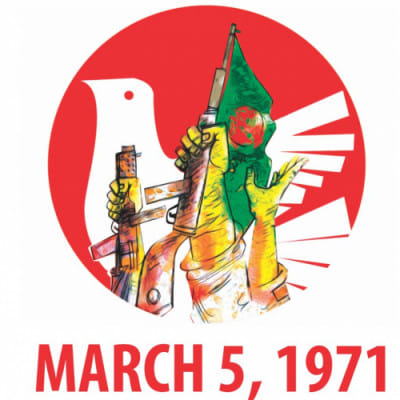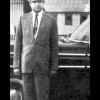March 27, 1971: Zia makes radio announcement on independence

As Bangabandhu Sheikh Mujibur Rahman declared the independence of Bangladesh, resistance began in Chittagong city and many other areas. Intense fighting broke out between the Pakistan military and the freedom fighters.
On behalf of Bangabandhu, Maj Ziaur Rahman, at 7:45pm on March 27, made a radio broadcast from Swadhin Bangla Betar Kendra in Kalurghat, north of Chittagong city.
“This is Swadhin Bangla Betar Kendra. I, Major Ziaur Rahman, at the directive of Bangabandhu Sheikh Mujibur Rahman, hereby declare that the independent People's Republic of Bangladesh has been established.... In the name of Sheikh Mujibur Rahman, I call upon all Bangalees to rise against the attack by the West Pakistan army. We shall fight to the last to free our motherland. By the grace of Allah, victory would be ours. Joy Bangla.”
In the morning, curfew was lifted temporarily and the foreign journalists staying at Hotel Intercontinental were taken away to the airport amid tight security. In a special aircraft, they were forced to leave Dhaka.
However, staying out of the sight of military, two of them managed to stay back in Dhaka. They were Simon Dring of the Daily Telegraph and AFP photographer Michelle.
Throughout the city, remnants of many lifeless bodies were seen scattered -- a stark reminder of the atrocities by the Pakistan military.
On the other side of the Buriganga river in Jinjira, freedom fighters continued to gather. As soon as the curfew was lifted, groups of people left Dhaka city for safer places.
Shaheed Minar was blown up by the army with demolition charges.
Archer Blood, the American consular general in Dhaka, sent copies of a telegram to different American consulate offices and embassies around the world expressing extreme horror at the systematic killing.
During a debate in Lok Sabha, Indian prime minister Indira Gandhi talked about the political situation in East Pakistan. She also discussed the issue in Rajya Sabha.
Source: Liberation War Museum and Bangladesh Genocide Archive

 For all latest news, follow The Daily Star's Google News channel.
For all latest news, follow The Daily Star's Google News channel. 





Comments